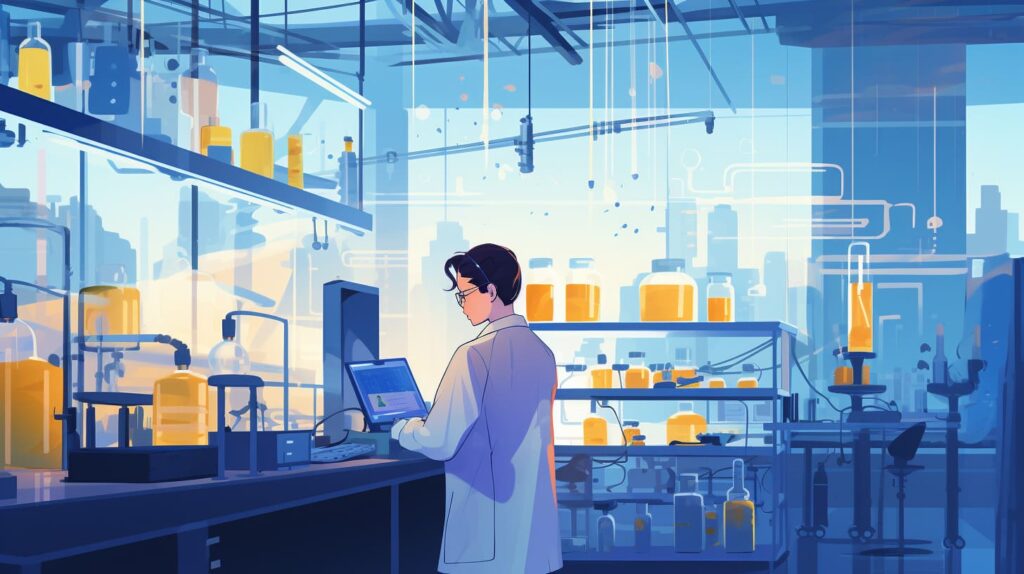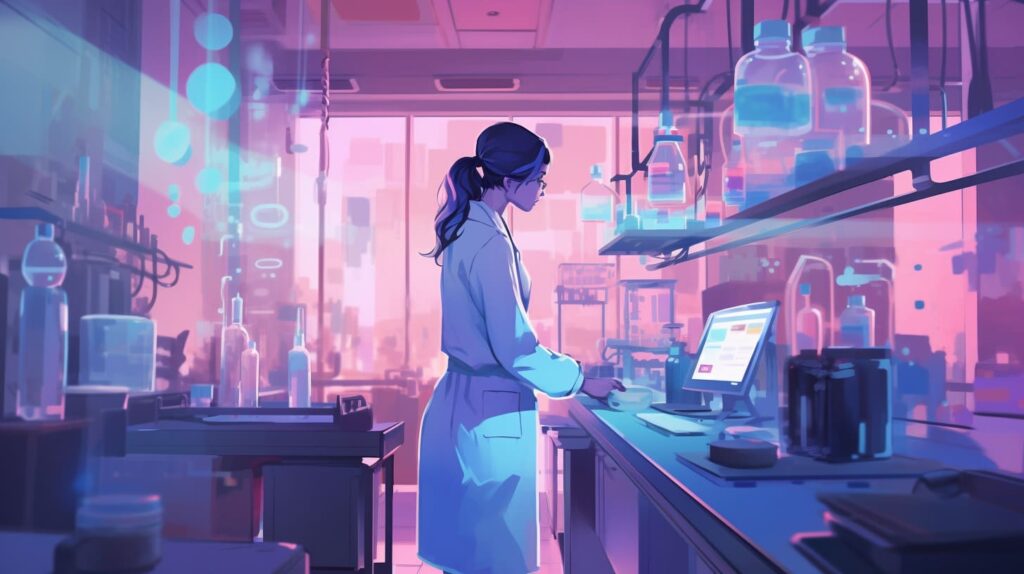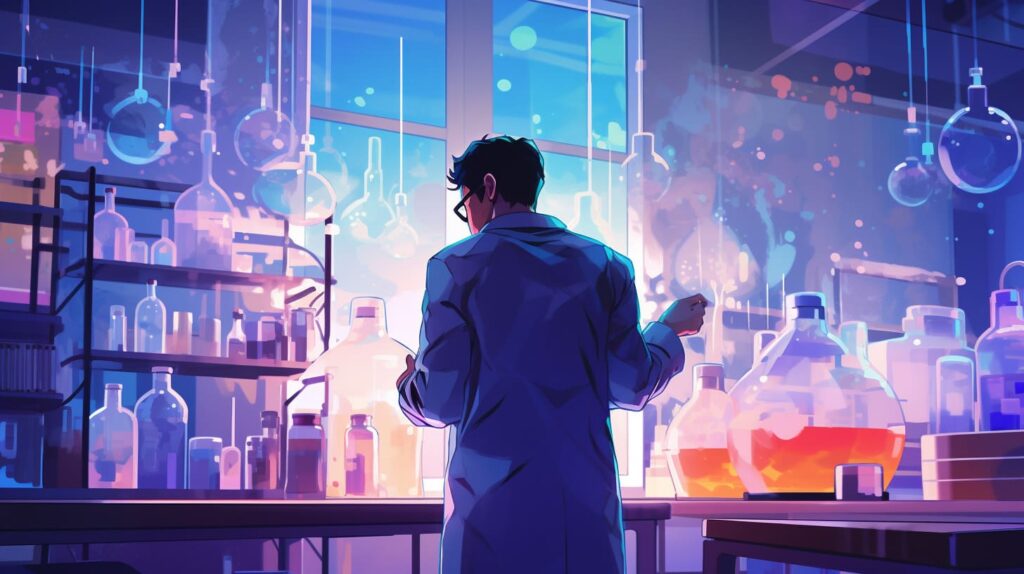Biotechnology stands at the crossroads where biology meets technology. The silent revolution has transformed our world, paving the way for groundbreaking discoveries and innovations. In the realm of biotechnology, science fiction becomes science fact.
This sector is experiencing an unprecedented boom. The fusion of biology and technology unlocks possibilities we once only dreamed of. From gene editing to synthetic biology, the advancements are not just rapid but revolutionary.
In this article, we will explore the biotech boom, delving into its evolution and the plethora of job opportunities it’s fostering. We will journey through the significant milestones, examine the pioneering technologies, and unveil the various career paths emerging in this dynamic field.
The Evolution of Biotechnology
The field of biotechnology is not new. It has roots in ancient times, with humans using biological processes for food production and medicine. However, the advent of modern biotechnology can be traced back to the discovery of DNA structure in 1953. This breakthrough laid the foundation for the development of genetic engineering, paving the way for the biotech boom we witness today.

Major Milestones and Breakthroughs
CRISPR: Clustered Regularly Interspaced Short Palindromic Repeats, or CRISPR for short, has been a game-changer. It’s a revolutionary gene-editing system that allows for precise, directed changes to genomic DNA. CRISPR technology has opened up new frontiers in genetic medicine, including the potential for curing genetic disorders.
Synthetic Biology: This field designs and constructs biological modules, systems, and machines for useful purposes. It aims at the creation of improved biological functions that meet current challenges, such as the production of biofuels and the development of new medical applications.
Genomics: The study of the genomes of organisms is referred to as genomics. The advent of genomics has provided a detailed understanding of the genetic makeup of a wide range of organisms, opening doors to numerous applications in medicine, agriculture, and environmental science.
The driving force behind the biotech boom is a combination of technological advancements, increased funding, and a growing demand for healthcare solutions. Advancements in data analytics, artificial intelligence, and machine learning have also propelled the field forward, enabling scientists to analyze complex biological data and generate insights that were previously unattainable.
Biotechnology companies are receiving unprecedented levels of funding, both from private investors and government grants. This financial backing is crucial for supporting research and development activities, leading to the commercialization of innovative products and therapies.
The aging global population and the increasing prevalence of chronic diseases have escalated the demand for new and effective healthcare solutions. Biotechnology is at the forefront of addressing these health challenges, developing novel therapies, and improving the diagnosis and treatment of diseases.
The evolution of biotechnology is a tale of continuous advancements and breakthroughs. The field has witnessed revolutionary changes from the discovery of DNA to the development of CRISPR, synthetic biology, and genomics. The confluence of technology, funding, and healthcare needs is fueling the biotech boom, creating a fertile ground for innovation and offering many opportunities for those seeking to forge a career in this dynamic sector.
The Landscape of Biotech Careers

Diversity of Career Paths
In the dynamic world of biotechnology, a plethora of career paths unfold before aspiring professionals. From research and development to regulatory affairs, the sector teems with opportunities. The diversity mirrors the multifaceted nature of biotechnology itself, encompassing fields such as pharmaceuticals, agriculture, and environmental science.
Required Skills and Qualifications
Biotech careers demand a unique blend of skills and qualifications. A strong foundation in biology and technology is paramount. Specialized knowledge in areas like genetics, microbiology, and bioinformatics can set candidates apart. Furthermore, skills in data analysis, programming, and project management are highly sought after.
Potential Career Trajectories
Embarking on a biotech career can lead to various trajectories. Research scientists delve into the mysteries of biology, striving for breakthroughs. Biotech engineers apply technological solutions to biological challenges. Regulatory affairs specialists navigate the intricate web of laws and guidelines. Each trajectory offers a unique blend of challenges and rewards, shaping the future of biotechnology.
CRISPR and Job Opportunities
Overview of CRISPR Technology
CRISPR, an acronym for Clustered Regularly Interspaced Short Palindromic Repeats, stands as a revolutionary gene-editing technology. It allows precise alterations to DNA sequences, enabling unprecedented control over genetic material. The technology has catapulted the field into a new era, opening doors to novel treatments and therapies.
Fields Benefiting from CRISPR
The applications of CRISPR are vast and varied. In medicine, it holds the promise of curing genetic disorders and creating personalized therapies. Agriculture sees its potential in developing resilient crops and combating pests. Environmental science envisions applications in biodiversity conservation and pollution reduction. The ripple effect of CRISPR is felt across numerous fields, each reaping its unique benefits.
Job Roles and Responsibilities
CRISPR technology has spawned a myriad of job roles. Research scientists explore its potential and push the boundaries of what’s possible. Laboratory technicians ensure the smooth operation of experiments and trials. Bioethicists grapple with the moral implications of gene editing. The responsibilities are as diverse as the technology itself, reflecting the multifaceted impact of CRISPR on the biotech landscape.
Future Prospects
Looking ahead, the future of CRISPR shines brightly. The technology continues to evolve, bringing forth new possibilities and challenges. The job market is poised for growth, with demand for skilled professionals on the rise. Those equipped with the knowledge and skills to harness CRISPR’s potential stand at the forefront of a new era in biotechnology, shaping the future of the field.
Synthetic Biology and Career Paths

Defining Synthetic Biology
Synthetic biology stands at the crossroads of science and invention. It engineers biological systems, often creating new forms of life. This field marries biology and technology, forging a pathway for innovative solutions.
Applications and Industries
From agriculture to medicine, synthetic biology casts a wide net. It’s the hand behind genetically modified organisms (GMOs) and biofuels. In medicine, it crafts new drugs and therapies. Environmental solutions also spring from its wells of innovation. Every industry touched by synthetic biology experiences a ripple of change.
Emerging Roles and Job Opportunities
The job landscape in synthetic biology is vast and varied. Biotechnologists, bioengineers, and research scientists find fertile ground here. Opportunities also burgeon for data analysts and software engineers, as technology intertwines with biology. The field beckons to those who seek to marry analytical skills with a passion for biology.
Skills and Education Required
A foundation in biology, chemistry, and mathematics is crucial. Degrees in bioengineering, biotechnology, or related fields open doors. Specialization in synthetic biology adds a golden feather to one’s cap. Mastering computer science and data analytics sharpens the edge in this competitive field.
Genomics and the Job Market
Introduction to Genomics
Genomics, the study of genomes, is the fuel driving personalized medicine. It deciphers DNA sequences, unlocking the mysteries of life. This field is a treasure trove of information, guiding healthcare and research to new frontiers.
The Impact on Healthcare and Research
Genomics is revolutionizing healthcare. It enables personalized medicine, tailoring treatments to individual genetic makeups. In research, it unravels the genetic basis of diseases. It’s a catalyst for discoveries, pushing the boundaries of knowledge.
Variety of Roles in Genomics
Genomics offers a smorgasbord of career opportunities. Genetic counselors, genomics data analysts, and laboratory technicians are in high demand. Research scientists explore the unknown, while bioinformaticians crunch the data. Each role is a cog in the wheel of genomics, driving the field forward.
Qualifications and Skills
A background in biology, genetics, or bioinformatics is the starting point. Advanced degrees and specialized training in genomics enhance prospects. Skills in data analysis, programming, and laboratory techniques are invaluable. Curiosity and a penchant for problem-solving are the unsung heroes of a career in genomics.
With the continuous evolution of biotechnology, the fields of synthetic biology and genomics are providing unparalleled career opportunities. The confluence of biology and technology in these areas is not just reshaping industries but also crafting diverse and rewarding career paths for the science aficionados. From creating novel life forms to decoding the blueprint of life, these fields are at the forefront of scientific innovation. Equipped with the right skills and an insatiable curiosity, aspiring professionals can find a fulfilling and pioneering career at the intersection of biology and technology.
Navigating the Biotech Job Market
Networking and Building Connections
In the dynamic field of biotechnology, building a robust network is paramount. Networking opens doors to opportunities, fosters collaborations, and promotes knowledge exchange. Attend industry conferences, join biotech forums, and connect with professionals on LinkedIn. Personal connections can offer insights, advice, and job leads that are not available elsewhere.
Continual Learning and Skill Development
Biotechnology is a field of constant evolution. To stay relevant, continual learning is essential. Pursue advanced degrees, attend workshops, and acquire certifications. Keep abreast of the latest research, methodologies, and technologies. A commitment to learning demonstrates adaptability and a passion for the field, qualities that employers value.
Staying Informed about Industry Trends
Awareness of industry trends is crucial for career progression in biotechnology. Regularly read reputable journals, follow influential biotech blogs, and subscribe to newsletters. Being well-informed about advancements and challenges in the sector helps in anticipating market needs, contributing to meaningful discussions, and making informed career decisions.
Leveraging Online Resources and Platforms
Online platforms are treasure troves of information and opportunities. Websites like BioSpace and Nature Jobs list biotech job openings. Participate in webinars, enroll in online courses, and join biotech communities. Online presence enhances learning and amplifies visibility in the professional community.
Future of Biotechnology
Predictions and Speculations
The horizon of biotechnology is vast and promising. Experts predict breakthroughs in personalized medicine, environmental sustainability, and agricultural productivity. Advancements in gene editing, artificial intelligence, and bioinformatics are anticipated to revolutionize healthcare, agriculture, and industrial processes. The fusion of biology and technology will continue to unlock possibilities, pushing the boundaries of what is achievable.
Emerging Technologies and Innovations
Biotechnology is on the cusp of witnessing groundbreaking innovations. Developments in synthetic biology aim to engineer life for beneficial purposes. The convergence of big data and genomics is enabling precision medicine. Innovations like lab-grown organs, biofuels, and gene therapies are gradually transitioning from labs to real-world applications. These technological leaps will necessitate a skilled workforce, creating a plethora of job opportunities.
Potential Influence on the Job Market
The ripple effects of biotechnological advancements on the job market are profound. The demand for skilled professionals in bioinformatics, genetic counseling, and clinical research is on the rise. Emerging technologies are giving birth to new roles and specialties. The sector is poised to experience job diversification, increased employment rates, and competitive salary structures. As biotechnology burgeons, so does the potential for diverse and rewarding careers.
Final Thoughts on the Biotech Boom
The biotech sector is pulsating with innovations and breakthroughs, marking a significant epoch in the intersection of biology and technology. From the precision and potential of CRISPR to the versatile landscapes painted by synthetic biology and genomics, the boundaries of what we deem possible are continually expanding.
Biotechnology is not just a field of science; it’s a canvas where biology meets technology to create art that can heal, feed, and fuel the world. The myriad of advancements discussed, including CRISPR, synthetic biology, and genomics, are mere glimpses into the vast potential residing in biotechnology.
In this canvas of endless possibilities, diverse career paths have emerged, offering a spectrum of opportunities for aspiring professionals. The roles are varied, the fields are vast, and the potential is limitless. Skills and qualifications may vary, but the core remains the same – a passion for innovation and a desire to make a significant impact.
Navigating the biotech job market requires more than qualifications. It demands a commitment to continual learning, a knack for networking, and a finger on the pulsating trends of the industry. Building connections, staying informed, and leveraging resources are the keys to unlocking the doors of opportunity in this booming sector.
The significance of this biotech boom cannot be understated. It’s a wave of innovation, a tide of opportunities, and a gust of possibilities. The advancements are not just creating jobs; they are crafting careers, building futures, and shaping the trajectory of science and humanity.
For those standing on the shores of aspiration, the biotech boom is a call to dive into the sea of opportunities. The waters are deep, the currents are strong, but the treasures are worth the plunge. The future of biotechnology is a tapestry yet to be woven, and every aspiring professional has a thread to contribute.
Additional Resources
Embarking on a journey in the biotech sector necessitates a well-stocked arsenal of resources. Here are some waypoints to guide your voyage:
- List of Reputable Biotech Companies:
- Educational Platforms and Courses:
- Industry News and Updates:
- Networking and Professional Organizations:

